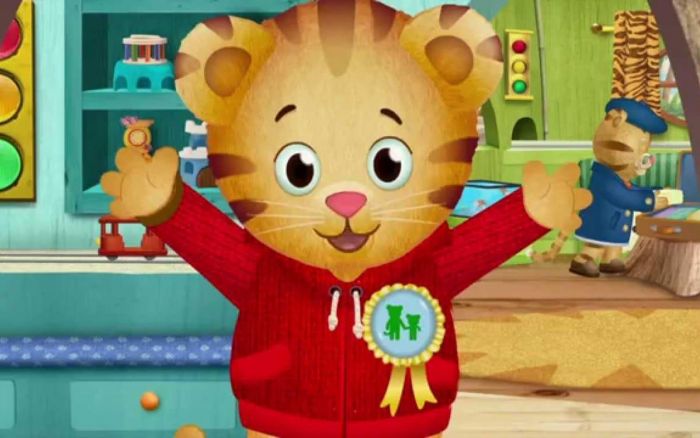Reading: Musical Artificial Intelligence, Daniel Tiger, Anime for Adults, Ben Sasse & More

Can artificial intelligence and machine learning create good music? “[G]iving machines a creative voice, literal inspiration… that is a much slipperier problem, tougher to program, than making them talk. To hone in on the luminous stuff coming out of a mouth or an instrument, to capture the sounds themselves, let alone ones abiding by their own internal logic and order — what’s the math for that? Where do the notes stop and the music begins?” The drum machine analogy is particularly illuminating.
Cubans barely have internet access they do have access to a service that rivals Netflix. “ ‘El Paquete Semanal’ (the Weekly Package) is a weekly trove of digital content — everything from American movies to PDFs of Spanish newspapers — that is gathered, organized, and transferred by a human web of runners and dealers to the entire country. It is a prodigious and profitable operation.”

Nathaniel Valle sings the praises of Daniel Tiger’s Neighborhood. “In less than thirty minutes, Daniel Tiger presents a model of living that’s about toddlers, learning as a family, and how songs help us process emotions and identity. But just as important is the way the show speaks to parents, acknowledging how we’ve learned to be good neighbors and the responsibility we have to model those lessons to our children.”
Though it’s the most famous, Tolkien’s Lord of the Rings wasn’t the first epic fantasy novel. “The late nineteenth and early twentieth century in particular saw a boom in fantastical fiction. In between the gothic literature of writers like Bram Stoker and the pulp fiction of Robert E. Howard and Clark Ashton Smith, came a wave of strange literature inspired by fairy tales, dreams, and fantastic imaginations.”

Matthew Gunn considers an approach to apologetics inspired by the classic Rurouni Kenshin anime series. “If Rurouni Kenshin — which failed on several occasions to show that it actually knew the core beliefs of the Christian faith — can still manage to understand itself, the story it wants to tell, and respect its viewer, maybe we as Christian creators need to reconsider how we are presenting an infinitely more valuable message.”
ScreenAnarchy’s Ard Vijn wishes there were more anime series for adults. “My high-school days are far behind me, and that section of my life doesn’t need to be revisited all that often. But so many [anime series] focus exclusively on teenagers, high-schoolers and students. Young love, growing up, graduating and finding your way in the world, these are very valid topics of course. But surely there is more than that? What about the life-altering choices I face nowadays? What about being a parent? Facing re-employment? Changing relationships?”

I generally like Ben Sasse but I’ve also grown increasingly ambivalent due to his voting record. Hence, I really appreciated the points that Jake Meador makes in his recent piece re. Sasse, civil society, and Nebraska politics. “This, of course, is precisely what is so odd about Sasse and [Utah senator Mike Lee]. If they were just garden variety GOP apparatchiks… well, why talk about civil society so much? Why criticize the president so much? Certainly one plausible answer is ‘chase that #maverick brand that John McCain is going to pass on to someone.’ But I don’t think it’s the only plausible answer, nor do I think it fully explains what either of them have done during their time in public life.”
Right-wing outrage over the recent performance of Julius Caesar reveals a fundamental (and ironic) misunderstanding of Shakespeare’s play. “Julius Caesar is a political play, one that plumbs the uneasy relationship between power and populism, as well as the conflicts that arise between personal relationships and loyalty to country. It even explores the pitfalls of various forms of government, from democracy’s potential for mob rule manipulated by showy speakers to the potential for personal power seeking in a republic to the dangers of iron-fisted, people-crushing authoritarian rule.”